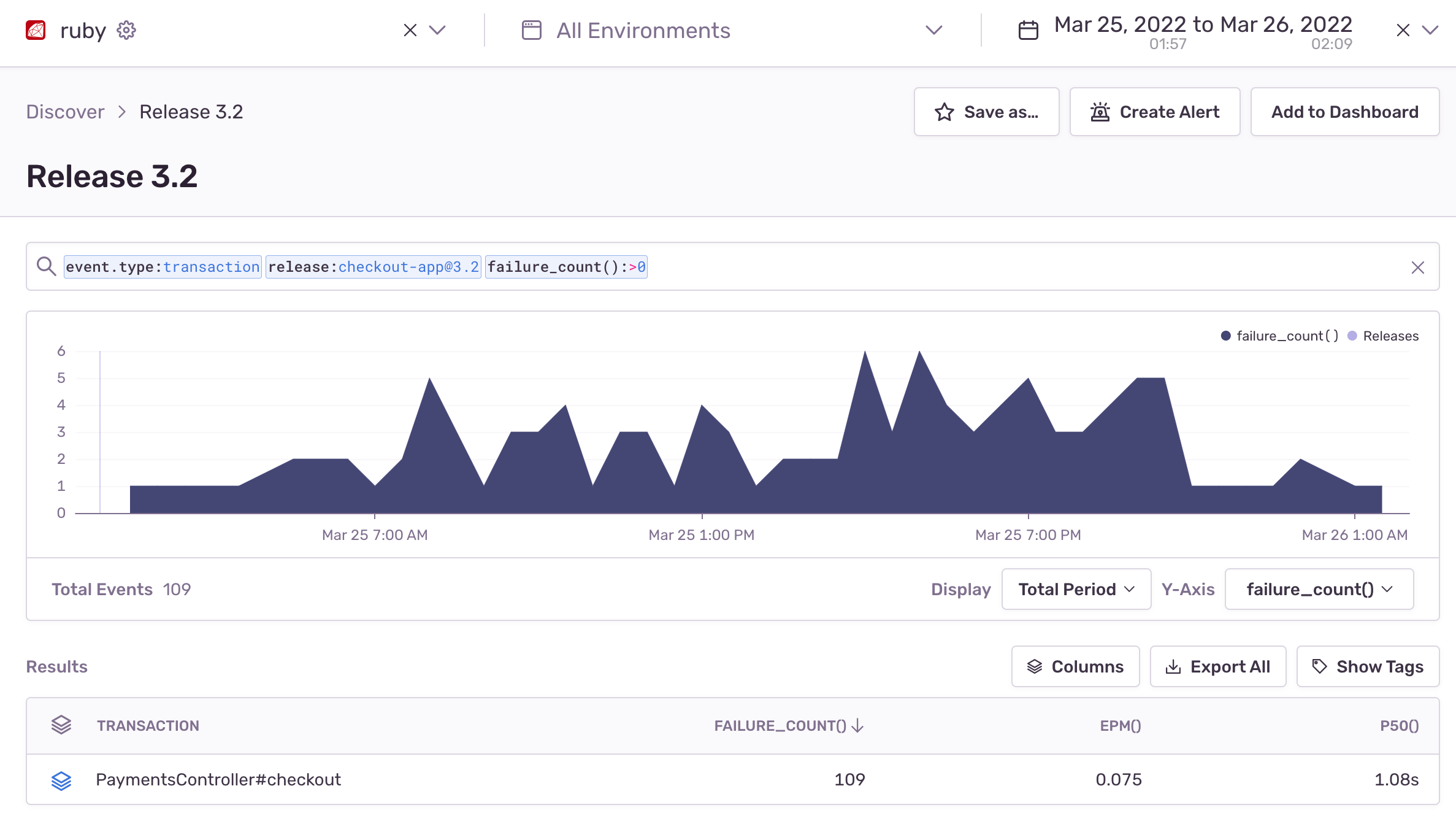The Sentry Ruby SDK now supports Release Health
The Sentry Ruby SDK now supports Release Health
Developers work tirelessly to publish updates to improve their products and services because, as we all know, a better user experience = happier customers. While shipping updates, features, and improved capabilities can help improve your user’s experience, introducing new code can also introduce new issues; and finding exactly what update caused a release to degrade can be time consuming and costly.
For example, when a Ruby developer deploys a new version of their app, having access to real-time adoption, and release-specific bugs can be the difference between reverting a release after a handful of errors or having your entire user base see the dreaded “500 - Internal Server Error”. If your users do start experiencing an unusually high number of errors after a release, finding what is broken or slow can be a daunting task. Who wants to comb through logs immediately after a launch?
By sending session data to the Sentry, developers get real-time insight into stability and adoption across releases to take action faster and ship with confidence. More specifically, they now have insight into:
New vs. regressed errors
Core metrics like crash-free users, crash-free sessions, version adoption, and failure rate
Related latency issues
Issues across a variety of conditions from geography to user agent
Release adoption and stability across versions
Check out the changelog or see the demo below.
Get started
Install
gem "sentry-ruby"Configure
Sentry.init do |config|
config.dsn = 'https://f51e96235a574f00a1466a2a9cdeba3a@o412713.ingest.sentry.io/5448139'
config.breadcrumbs_logger = [:sentry_logger, :http_logger]
# To activate performance monitoring, set one of these options.
# We recommend adjusting the value in production:
config.traces_sample_rate = 0.5
# or
config.traces_sampler = lambda do |context|
0.5
end
endWith the new Sentry Ruby SDK, developers can record session data and automatically manage releases. You’ll be able to identify release specific errors, crash free rate, failure rate, session duration, and more. You can uncover the what-and-when if a release starts to tank (no more log reviews immediately after launch). Now Ruby developers can use Sentry to stay on top of errors, improve latency issues, and monitor and compare the performance of specific releases.
Analyze with Discover and Dashboards
What if you see less than 100% crash free users or crash free sessions or want to look at latency issues by release and failure count, no problem. Investigate these issues in Discover to help get to the root of the problem.
Analyze these cases by any condition from geography to browser type, save these queries to Discover, build dashboards to visualize the results, and/or define custom alerts to get notified of software issues that are important to you or your business.
Update your Ruby SDK to solve release specific issues with context and confidence. Save time, and the headache of manual release log reviews by using the Releases.
Get started with Sentry for Ruby and drop us a line on GitHub, Twitter, or our Discord. And if you’re new to Sentry, you can try it for free today or request a demo to get started.




